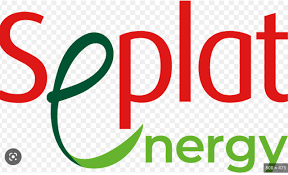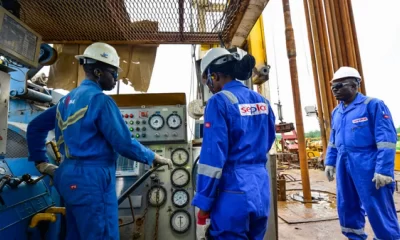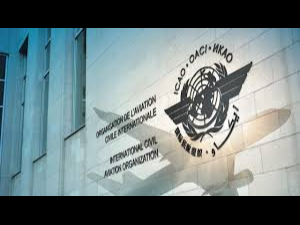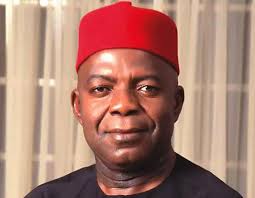OPINION
REVISITING SEPLAT, AFTER SIX YEARS

By Okey Ikechukwu –
History was made, nearly a decade ago, in the oil and gas and financial services industries, with the simultaneous listing of the ordinary shares of Seplat Petroleum Development Company Plc on the main market of the London Stock Exchange (“LSE”) (LSE:SEPL) and the Nigerian Stock Exchange (“NSE”) (NSE:SEPL).
Back in 2014 when this page said that Seplat “enjoys the rare distinction of being the first Nigerian company operating strictly in the upstream oil and gas sector to be simultaneously listed on the London Stock Exchange (LSE), as well as the Nigerian Stock Exchange (NSE),” the celebratory write-up, “Dangote, Seplat and Who Next?” was urging Nigerian big firms to follow bold examples and register viable presence in the global economic space. Seplat’s move was then described as: “…suggestive of not just credibility but pedigree and strategic positioning for global relevance. No company becomes a player in the global business environment because the government likes or dislikes it. It is an inclement environment, where no one gets piggy backed across tough terrains. If anything, those who make it unto the platform must break out of the protection and restricting paradigms of particularistic national economies… the core focus of the strategic footwork is to expand the economic space and create opportunities (not charities) for a mix of competent players.”
One major feature of the global economic space is that it tolerates only serious economic actors and commercial interests with good governance templates. It is for players with proven capacities for creating, drawing and redrawing new boundary lines in product and service quality, as well as service delivery. Seplat’s continued relevance (especially with its 2020 balance sheet) is defined by measurable contributions and verifiable impact. The news is that the company has always had a sound corporate governance framework, as well as an organizational culture that rests squarely on a board of directors and management team with very commendable records. This, perhaps, explains its many successes under the rigorous scrutiny of the UK’s Financial Conduct Authority (FCA). Notwithstanding this fact, the firm was recently in the news over some alleged debt with a related company. The curious thing in the, perhaps contrived, media controversy is that a man who is not owing a company in which he has equity, who received no dividends, who took no pay or loans from the company, who is not part of the board and management and who even lost money in the venture is being arm-twisted to take responsibility for what falls outside his plate. A quoted public liability company is always guided by laws regarding its dealings and relationships with its subsidiaries. The very definition, and treatment, of debt is part of the deal and the courts are looking into the matter.
But Seplat is not new to controversy at all. Relatively early in the life of the company, it was wrongly mentioned in a media report about irregularities in the granting of Pioneer Status Incentive to “undeserving companies by NIPC between 2010 and 2014, leading to a revenue loss of $20 billion.” The authorities looked into the matter and quickly came out with a Statement of Exoneration for Seplat jointly signed by the Nigerian Export Promotion Council (NIPC), the Federal Inland Revenue Service (FIRS), the Ministry of Trade and Industry (MITI), and the Revenue Mobilisation and Fiscal Commission (RMAFC). The processes leading up to the granting of Pioneer Status Incentive to over 400 Nigerian companies, including Seplat, was thereby diligently explained and clarified. The government further showed that the “publication did not distinguish between pioneer status from other forms of fiscal incentives” and that the Pioneer Status Incentives granted to Marginal Oil Field Operators/Nigerians owned oil companies is in line with the Local Content policy of the government to promote Nigerian Content Development, local capacity and capabilities. It noted, further, that there was no loss of $20 billion, describing the figure as unrealistic, purely speculative and lacking in any material basis whatsoever, given the existing financials at the time. The joint statement wondered and noted as follows: “The motive behind the publication is difficult to understand, yet it remains very disturbing when one considers its negative impact on the reputation and integrity of the highly reputable Nigerian company, Messrs Seplat Petroleum Development Company Plc that had attained the enviable status of being listed and successfully trading in the Nigerian and London Stock Exchanges”
For the record, the Approval from the NIPC, regarding the Pioneer Status incentive, was found to have been duly and properly conveyed to Seplat, indicating Corporate Tax Holiday on eligible product/service, for five years. This was also found to have been duly followed by a letter from the FIRS and the Ministry of Trade and Industry conveying same. The application was made in 2013, while the Pioneer Status was granted in February 2014, with the FIRS in tow. Seplat’s credibility has since made substantial mileage from the fact that the savings the company has from tax incentive has been utilized in driving dramatic increase in gas supply to the domestic market, as over $300 million in gas development occurred within the tax holiday period granted by the federal government. The company also recorded substantial increase in oil production, from 14,000 barrels in 2010 to 70,000 in 2015 alone. Add the foregoing to the conspicuous upward movement of Royalty payments from $40 million in 2010, to $145 million in 2014, as well as continued funding of the NPDC/Sepalt JV, despite huge outstanding cash calls. There are also records of job creation and community development, with over 300 new jobs. The multiplier effects of Seplat’s over $700 million which has gone into the system through Nigerian contractors brought in another 1000 jobs. This boils down to aggressive reinvestment of proceeds, significant increase in oil and gas production and the tripling of Royalty and tax payments, as well as, post Pioneer Status.
The company’s 2020 full year financial results show that, notwithstanding the fact that the year was a challenging one, Seplat demonstrated resilience, creative management and an admirable ability to break new grounds, against all odds. Its ability to perform well and deliver relatively above par on production, in line with guidance and despite operating with minimal incidences of COVID-19 cases, say a lot. It is a matter of record that the company invested in Asa North and Ohaji (ANOH) and voluntarily paid down $100 million of debt from the $330 million of cash generated from operations. Seplat’s current sheets shows an increase in capital investment, despite facing the lowest oil prices in its 10-year history. It has not yet failed to honour its commitment to shareholders, ensuring a regular income stream on their investment and maintaining shareholder trust and loyalty.
Among other things, the company has final dividend of $0.05 per share recommended ($0.10/share for full year), operating profit of $121 million (before non-cash impairments and unrealized fair value losses), a strong cash position of $259 million after $100 million RCF repayment, among other positives. The other positives include liquids production of 33,714 bopd, gas production of 101 MMscfd Low unit cost of production at $8.90/boe, with cost-cutting initiatives ongoing, particularly at OML40/Ubima. Seplat has drilled/completed nine wells and brought eight onstream in 2020. There is also the creation of New Energy unit to manage gas processing and future low carbon to zero carbon initiatives, as well as the AGPC financing signed in February 2021, $260 million raised, with commitments for $450 million. Furthermore, the Board Directive to eliminate Related-Party Transactions by end of 2021 holds the prospect of a rebirth of sorts. The company is now looking at a full-year production guidance of 48-55 kboepd, subject to market conditions; with a focus on gas projects and an exploration well to meet reserves replacement targets.
The company knows that gas is the lower-carbon feedstock for affordable electricity, especially with Nigeria’s galloping demographics. Seplat is quietly leading the country away from huge expenditures on imported, expensive, high-emission diesel-generated energy. Its desire to present the necessary baseload for a functioning electricity grid that will promote and project renewable energy, the way it exists in more technologically advanced nations, is a project on its own. The ultimate goal is to create a balance between environmental sustainability and the social agenda of a growing modern state; as Nigeria transits in its energy needs and use. The flagship ANOH project is now fully funded. Seplat has made visible giant strides in these trying times. Major gas processing units are expected to arrive in the third quarter of this year and installation is to commence before the end of the year. The mechanical completion and pre-commissioning is expected to take place in the first quarter of 2022, with the first gas flow to customers is expected to commence within the year.
All said, and after nearly seven years of full operations here and beyond our shores, Seplat Petroleum Development Company Plc has given a good account of itself, by providing shared values to the industry, the nations and to its stakeholders. As for questionable controversies, they usually collapse when confronted by the truth.
OPINION
GTBank, VeryDarkMan, and the EFCC: A Dangerous Precedent for Free Speech in Nigeria

By Jeff Okoroafor
In recent weeks, the arrest of social media activist Martins Vincent Otse, popularly known as VeryDarkMan (VDM), by the Economic and Financial Crimes Commission (EFCC) has sparked outrage and reignited debates about the Nigerian government’s misuse of law enforcement agencies to suppress dissent.
The circumstances surrounding his detention—reportedly linked to his criticisms of Guaranty Trust Bank (GTBank) and its influential customers—raise serious concerns about the weaponization of financial and anti-corruption institutions to silence critics. VeryDarkMan, known for his unfiltered commentary on social and political issues, has built a reputation for exposing alleged corruption, fraud, and misconduct among Nigeria’s elite. His recent posts questioning GTBank’s dealings with high-profile individuals appear to have triggered his arrest. While the EFCC claims his detention is related to “cyberstalking” and “defamation,” many see it as a politically motivated move to punish him for speaking truth to power.This is not the first time a vocal critic has been targeted under dubious charges. The EFCC, originally established to combat financial crimes, has increasingly been accused of being weaponized by the government and powerful interests to intimidate activists, journalists, and opposition figures. The agency’s swift action against VDM—while turning a blind eye to far more severe cases of fraud involving politically connected individuals—exposes its selective enforcement of the law.GTBank, one of Nigeria’s most prominent financial institutions, has denied involvement in VDM’s arrest. However, given the bank’s history of litigation against critics and its connections to influential figures, skepticism remains. If GTBank or any of its high-net-worth customers pressured authorities to detain VDM for his online commentary, it would represent a dangerous collusion between corporate power and state repression.Banks should not operate as instruments of censorship. If citizens cannot question financial institutions without fear of arrest, Nigeria’s already fragile democracy suffers further erosion. The right to criticize corporations—especially those handling public funds—is fundamental to accountability.The EFCC was once hailed as a crucial anti-graft agency, but under successive governments, it has devolved into a tool for political vendettas. From the arrest of journalists like Agba Jalingo to the harassment of activists like Omoyele Sowore, the pattern is clear: the EFCC is increasingly deployed to stifle free speech under the guise of fighting cybercrime.Section 24 of Nigeria’s Cybercrime Act, often cited in such cases, is dangerously vague and prone to abuse. It criminalizes “offensive” or “annoying” messages, giving authorities broad discretion to punish dissent. This law, alongside the EFCC’s growing politicization, creates a chilling effect where citizens self-censor to avoid persecution.The arrest of VeryDarkMan is not just about one individual—it is a test of Nigeria’s commitment to free speech. If financial institutions and government agencies can arbitrarily detain critics, then no voice is safe. Civil society, the media, and the legal community must push back against this authoritarian trend.Judicial Accountability: Courts must scrutinize EFCC’s actions and reject frivolous charges meant to suppress speech.Legislative Reform: The Cybercrime Act should be amended to remove ambiguous provisions that enable repression.Public Pressure: Nigerians must demand transparency from GTBank and the EFCC, ensuring that neither entity is used to punish critics.Nigeria cannot claim to be a democracy if the state and corporate powers conspire to silence dissent. The EFCC must return to its core mandate of fighting corruption—not citizens. VeryDarkMan’s case should serve as a rallying cry for all who believe in free expression. If we allow this precedent to stand, we risk descending into a regime where only the powerful have a voice, and truth is a punishable offense.Jeff Okoroafor is a social accountability advocate and a political commentator focused on governance, accountability, and social justice in West Africa.OPINION
Reforms, Reluctant Reformers and Bold Reforms
By Uddin Ifeanyi
The incumbent Federal Government is wont to make a song and dance of its reform credentials. Of late, it has been all about how smitten the international community is by these reforms – never mind that a growing domestic cohort chafes at them.Most other times, government’s spokespersons advert attention to how brave the Tinubu administration was to roll back the subsidy schemes in both the foreign exchange and domestic petrol markets.
Against the backdrop of the pussyfooting by its predecessors around both these reforms, the Tinubu government’s shills make a persuasive case. History, however, has more than one way of being explained. Its consequences, not so. In the case of the Tinubu government’s storytelling around its two most important market-based reforms, one indubitable consequence of the failure of previous governments to deal with financial leakages in the foreign exchange and downstream oil and gas sectors of the economy was that the exchequer had haemorrhaged to the point of severe anaemia when this government came into power.It is doubtful if the Tinubu administration could have carried on business as usual in these sectors without beaching the ship of state. Did the government, then, act from the courage of its convictions? No. More like captives of circumstances would. This reading is reinforced by the government’s subsequent reform failures. Assume, for the sake of argument, that the recourse to market-based reforms was in recognition of the need to properly price domestic transactions as part of the effort to ensure the efficient use of domestic resources. Is there a more necessary requirement for meeting this objective than reforms that improve the efficiency of the state?Unlikely. But the incumbent Federal Government has done nothing to address a state that is generally acknowledged to be too bloated, both for its own good and for the benefit of the economy that it is there to serve. The Oronsaye Report may no longer be as easily applicable as a reform initiative as when it was first released. But this is only because the Tinubu government has increased the state’s capacity, without notably making it more efficient. In administration, as in philosophy, the simplification of entities is a far more compelling case for the efficient generation, deployment, and use of increasingly scarce resources than their multiplication.If the administration then fails in its own reasoning, in so far as reforms to the organisation of the state is concerned, it can hardly be described as bold in its execution, either. Nowhere is this latter failing more glaring than in our administration of criminal justice. If the Nigeria Police Force daily fails the test of public opprobrium, the judiciary scarcely paints itself in glowing colours either.Yet, both are critical for an efficient market economy. The Americans still use cheques for their financial transactions. We cannot. And this is not because we have a far more sophisticated financial services space. True, settlements of banking transactions take place faster, here.True, we also have statutes against the issuance of dud cheques. But enforcement of any law, rule or regulation is a nightmare, here. Banks struggle to recover collaterals pledged for loans. Small wonder that we do not have a thriving mortgage space? The trust deficit has far-reaching implications, unfortunately. With it, contracts cannot be freely entered into. And yet, we are still to see reforms to our criminal justice system from our bold advocates.No less important, the state’s capacity to properly regulate the private sector is still in doubt. This is as much a case of regulatory capture as it is a worry about competence. Capture is worrisome, especially when private entities compromise a regulator. But its effects are no less harmful when industry is influenced and controlled by the arm of the state set up to regulate it. Either way, economic vibrancy is lost. And with it all prospects of attracting investments – whether of a local or foreign variety.Thankfully, there is still just about enough time and space for some of the reforms that the economy needs. The fear is that protestations to the contrary aside, we still suffer a severe shortage of the cojones needed to see these reforms through.Uddin Ifeanyi, journalist manqué and retired civil servant, can be reached @IfeanyiUddin.OPINION
Electoral Reform: INEC, Citizens’ Proposals, and the Implications for 2027

By Samson Itodo
Nigeria’s 2027 elections, now just 21 months away, may be regulated by a new electoral law, possibly the Electoral Act 2025, as long as the National Assembly concludes the ongoing amendment process and the President grants assent to the bill this year.Therefore, the next few months will be determinative.
Debates on electoral reforms and proposed amendments to key sections of the Election Act 2022 and Constitution will dominate public discourse. As the momentum of the 2027 election gathers steam, politicians are becoming more invested in tweaking the rules of the game to guarantee electoral victory in 2027 rather than ensuring electoral reform proposals address the intractable challenges bedevilling Nigeria’s electoral process.Foremost among these challenges is the declining public trust in the electoral process due to election manipulation. Also, ‘captured’ democratic institutions, like INEC and the judiciary, are encumbered by persistent political interference and lastly, policies and practices that disenfranchise eligible citizens from voting.INEC’s Proposals for Electoral ReformINEC has officially highlighted its proposals for electoral reform in the current electoral cycle. These include four major constitutional amendments cutting across 16 sections of the 1999 constitution (As Amended). The proposals include the introduction of early voting and special voting to allow eligible voters on essential services to vote at elections. This includes election officials, security personnel, accredited journalists and election observers, as well as voters under incarceration and Nigeria living in the diaspora. This reform will ensure eligible voters are not disenfranchised as a result of their role in elections or location. To enhance the independence of the Commission, INEC is proposing the removal of the powers to appoint Resident Electoral Commissioners (RECs) from the President and vest the power in INEC. This amendment would empower INEC to appoint and discipline Heads of State Offices, FCT Offices, and State Directors of Elections. Furthermore, INEC is advocating for the establishment an Electoral OffencesCommission and a Political Party Regulatory Agency. To advance political inclusion, INEC recommends the creation of designated constituencies for women and persons with disabilities.In relation to the 2022 Electoral Act, INEC is advocating for amendments to 35 sections. Notable amongst the proposals include removing the ambiguities in the result management process, particularly the ambiguity in the words ‘transfer’ and ‘direct transmission’ of election results used in Sections 60(5) and 64(4 and 5) of the Electoral Act, which in the estimation of the Commission has resulted in conflicting interpretation.Another significant proposal is the introduction of a caveat to limit INEC’s power to review election results solely to cases of declaration of results under duress. Finally, INEC proposes the introduction of electronically downloadable voter cards or any other form of identification acceptable to the Commission for voter accreditation. This would enhance voter participation and reduce barriers to participation, especially where the physical distribution of Permanent Voter Cards (PVCs) has proven challenging.Citizens’ Demands for Electoral ReformFollowing extensive consultations and a review of both domestic and international election observation recommendations, civil society groups released a Citizens’ Memorandum on Electoral Reform (2024). The memorandum outlines 37 recommendations under 15 strategic objectives across 15 priority reform areas.A key citizen demand is strengthening INEC’s independence and professionalism. To achieve this, the power vested in the President to appoint the Chairman, National Commissioners, and RECs should be removed and a multi-stakeholder appointment mechanism adopted.This will ensure appointment to INEC are merit-based appointments and devoid of political interference. The constitutional criteria of “non-partisanship and unquestionable character” should be expanded to include professional qualifications, health status, age, and gender.The introduction of mandatory timelines for appointments into INEC, such as requiring vacancies to be filled within 30 days, is recommended. It will prevent unwarranted delays in constituting the Commission as witnessed in the current instance where the second National Commissioner position for the South East vacated by Barr. Festus Okoye, two years ago, remains unfilled.Another significant demand is the resolution of pre- and post-election disputes before the swearing-in of elected officials. This amendment will enhance the legitimacy and stability of the electoral process. Achieving this will require revising election timelines as well as abridging the timeframe for hearing and determining pre-election matters and election petitions.The citizen memo also advocates for mandatory electronic transmission of results and legal timelines for testing electoral technologies deployed by INEC. These steps are crucial to improving transparency of any part of the electoral powered by technology. To enhance voter turnout, the memorandum proposes a review of the requirements for voter identification to permit the use of other legally acceptable means of identification for voter verification in addition to Permanent Voters’ Cards (PVCs).Lastly, early voting is proposed to accommodate election officials and voters delivering essential services on election day such as security personnel, journalists, and accredited observers. This reform would ensure these critical actors are not disenfranchised due to their responsibilities on election day.Implications for the 2027 ElectionsWhile President’s Tinubu electoral reform agenda remains unclear, the National Assembly, through its joint committee on electoral reform, has made significant progress in the review of electoral laws. Four critical priorities emerge from INEC’s proposals and citizens demands:First, there is a great need to introduce special mechanisms to uphold citizens’ right to vote by making voting accessible. Proposals like early/special voting will enable historically marginalized eligible voters exercise their franchise. It will be historic for INEC officials, inmates, Nigerians in the diaspora, and others to cast their ballot in 2027 due to early/special voting. Alternative forms of identification and downloadable voter cards could address voter disenfranchisement resulting from the non-issuance of PVCs.Secondly, the election results management regime needs an overhaul. Certain ambiguities in the current electoral act that occasion misinterpretation and discretionary enforcement need to be resolved to clear procedures for collation and transmission.This should include compulsory electronic transmission to complement the manual collation process. Although the Supreme Court has ruled that the INEC IReV is not part of the collation process, this reform cycle presents an opportunity to integrate electronic transmission into the results collation process. Unfortunately, electronic transmission has not featured as a priority reform issue in the current reform process in the National Assembly.Thirdly, INEC’s independence is non-negotiable. There is growing consensus that divesting the power to appoint individuals from the President is a step towards recapturing the Commission and restoring public confidence. Lastly, concluding election disputes before swearing-in will create a sense of equity and prevent incumbents from influencing judicial outcomes using state resources and power.However, INEC’s proposal that its power to review election results under Section 65 Electoral Act 2022 should be limited to instances of declaration by duress is problematic. The current law provides two conditions for the exercise of this power: when election results are declared voluntarily and when election results are declared contrary to the provisions of the law, regulations and guidelines, and manual for the election. INEC’s proposal to eliminate the latter will further weaken the results management process, considering recent elections where elections were stolen through clear violations of the Electoral Act and INEC guidelines. Rather than limit the conditions, the current provision should be retained and strengthened to provide clarity on the procedure for activating the power to review election results.As Nigeria enters a critical period in the electoral reform cycle, history beckons the national assembly and the President to act as statesmen and women by prioritizing public interests above personal or partisan political gain. The country’s electoral process is bleeding and bereft of public trust. While electoral amendments are a pathway to rebuilding trust and safeguarding the credibility of the 2027 elections, attitudinal change among political elites is the reform most needed to ensure every vote counts in February 2027.Samson Itodo is an election, democracy, and public policy enthusiast. Itodo serves as the Executive Director of Yiaga Africa and Principal Partner of the Election Law Center. He is also a member of the Kofi Annan Foundation board and the Board of Advisers of International Institute for Democracy and Electoral Assistance (IDEA). Comments and feedback to sitodo@yiaga.org































